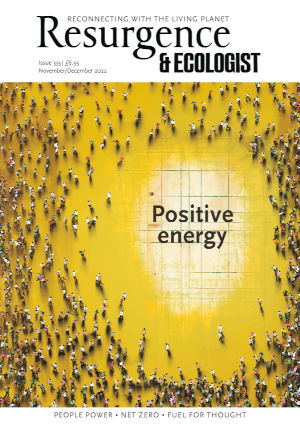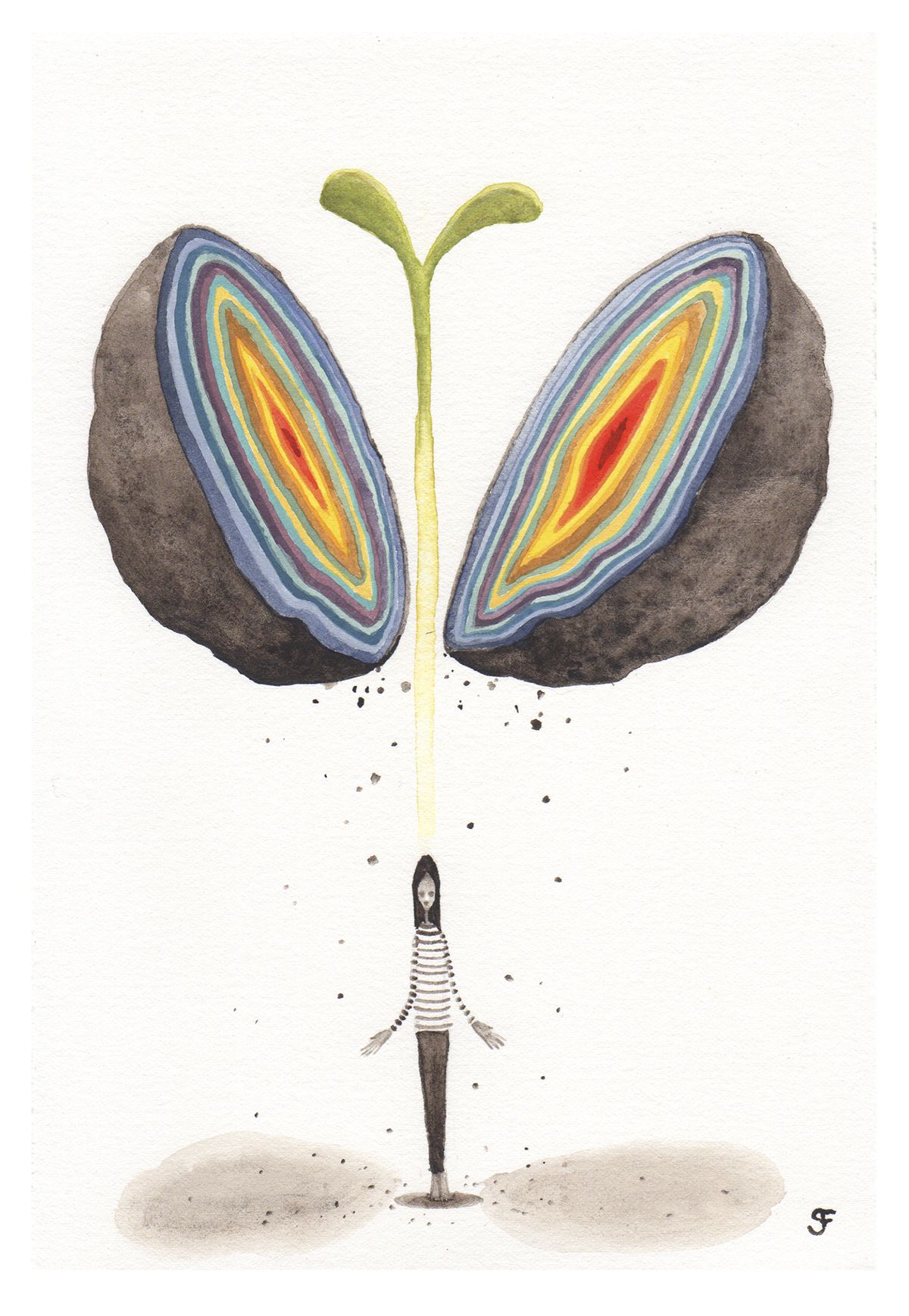I began the Resilience Project after my own burnout from youth climate activism. I had no idea how to make sense of planetary breakdown and widespread injustice, so I created an organisation dedicated to deepening support for young people living through the climate emergency. It’s no surprise, then, how excited I was to interview Chris Johnstone. Whilst we are distanced by years, our generational gap visible on our zoom call, we share a closeness that comes from both of us dedicating our work to asking the question, “How do we flourish, collectively?” We met online to talk about the revised edition of Active Hope, a book that celebrates 10 years of existing, inspiring, and breaking the mould.
Katie Hodgetts: Chris, can you first of all give us a snapshot of Active Hope? For those who’ve never read it, what can readers expect to find within?
Chris Johnstone: The starting point is recognising that we’re facing a world situation that’s hard to look at, hard to take in. There are so many different aspects of a larger planetary crisis, whether it’s the climate crisis we’re heading into, or the widening of extreme inequality, or the different expressions of war around our world. And there’s a kind of sense of loss of confidence in the future. International polls have been done and most people feel the future is getting worse. There’s a kind of endemic collapse of hope about the future. And in response to that, Active Hope’s subtitle now reads, ‘How to face the mess we’re in with unexpected resilience and creative power’. What I mean by unexpected resilience is that sometimes we can surprise ourselves when we’re facing a challenge. We can step up to new levels of capacity, we can find strengths that we never knew that we had, and we’re looking at what helps to make that happen. At the heart of it is inviting us to think about hope in a different way: rather than thinking about hope as in the feeling that things are going to get better, which a lot of people don’t have, to think about hope more as a direction that we can head in.
KH: So much has happened in the past 10 years – not only the pandemic, but also the rise of movements like Extinction Rebellion, the youth climate movement, Black Lives Matter and mutual aid. There have been polarised forces of hope and despair. How has Active Hope changed with the times?
CJ: We write about three different stories. One is Business as Usual, which is the idea that things aren’t so bad and we can carry on doing our business the way we usually do. What provokes the response of the youth climate movement and Extinction Rebellion is deep concern at the multiple ways in which our world is unravelling. There’s a larger pattern of multiple intersecting, interrelated, interimpacting crises that we call the Great Unravelling. This story is like a horror story really, and if that’s the only story you see, it’s incredibly distressing.
But there is another story, which is that crises can become turning points. It’s not just like one or two turning points here or there, but there’s a larger pattern of turning that can be opposite to the Great Unravelling. This story takes the Great Unravelling as a starting point, acknowledges that it’s happening, but it’s saying, let’s not let the Great Unravelling have the last word. Let that be part of a story that we also have a response to. We call that story The Great Turning.
In the first edition of Active Hope, published 10 years ago, we write a lot about The Great Turning. But the response I was getting when running workshops or giving talks was, “Oh, that sounds a lovely idea, but I can’t see it happening,” or, “We’ve missed the moment for The Great Turning – we’re too late.” Whereas we started the first edition with Business as Usual as the dominant story, we recognise in the new edition that, actually, now the Great Unravelling has gone mainstream. Ten years ago, we had people saying, “Crisis? What crisis? I think things are fine.” There isn’t that sense now. The Great Unravelling is something that people have noticed and are horrified by, and that’s leading to eco-anxiety and ecoresignation – the sense of, like, what can we even do?
So we now want to shift the emphasis in The Great Turning away from outcome, which is, “Will it happen? By when? In what way?” because we don’t know. Instead, we could shift our attention from outcome to process and ask, “What would The Great Turning look like if it were happening through you now? What would it look like if it were happening today in my life?” It is likely that we play a role in Business as Usual happening through us, which is leading to the story of the Great Unravelling. But also, what would happen if instead The Great Turning happened through us in our actions and choices today?
KH: And of course we need more than just individual actions to effect change. How has Active Hope listened and responded to this call for global justice?
CJ: If we start with Active Hope by acknowledging where we are – that we live in a hugely divided, unequal world where hundreds of millions of people still starve while billionaires are increasing their wealth, and that we live in a world where some lives are seen to matter more than others – when we talk about Active Hope, what do we hope for? What do we turn away from, and what do we turn towards? One of the things that we turn away from is a colonial mindset. We’ve named this decolonisation process in the book.
We need to dismantle oppressive structures that cause harm, and that includes our own participation in them. It’s turning up with an intention to play our part, turning away from that which causes harm, turning towards that which supports the flourishing of life, which has to have justice right at its heart. We won’t get it right all the time, but we can learn from our stumbles and falls and from each other. I see it like a recovery process, which I learned from working in the addictions field. There’s recovery from, but there’s also recovery towards. What is it we want to recover towards? That’s a shared journey that we can all take part in together.
www.activehope.info. The Resilience Project can be found at: www.theresilienceproject.org.uk







